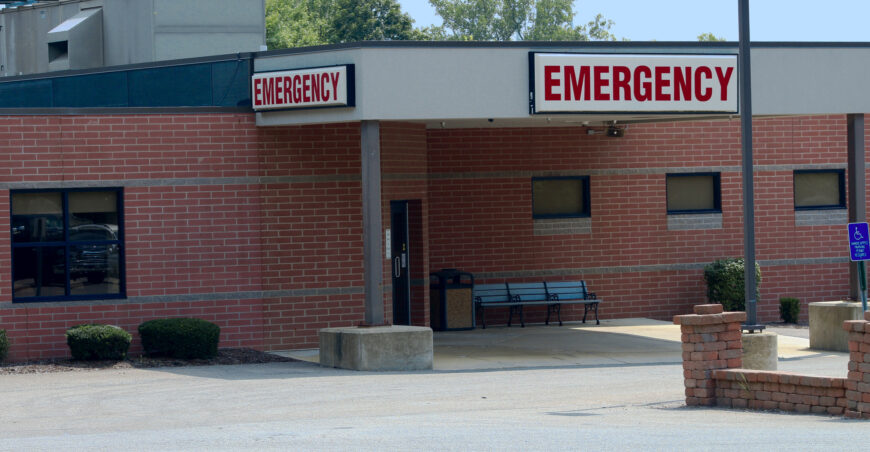Micro-hospitals represent a significant evolution in healthcare delivery and real estate. In recent years, the healthcare industry has witnessed a significant transformation in how medical services are delivered. One of the most intriguing developments is the rise of micro-hospitals. These compact, highly efficient medical facilities are redefining healthcare real estate and meeting the needs of communities across the country. This article explores the concept of micro-hospitals, their benefits, and why they are becoming an essential component of the modern healthcare industry.
What Are Micro-Hospitals?
Micro-hospitals are small-scale inpatient facilities that provide comprehensive medical services, typically offering between 8 to 50 beds. These facilities bridge the gap between full-service hospitals and urgent care centers, providing a wide range of services, including emergency care, surgery, and inpatient care, but on a smaller scale. Unlike urgent care centers, micro-hospitals operate 24/7, offering around-the-clock care with the capability to admit and treat patients for longer periods when necessary.
The Benefits of Micro-Hospitals
1. Accessibility and Convenience
Micro-hospitals are strategically placed in areas where larger hospitals may be too far away or too cumbersome to access. This proximity to residential neighborhoods ensures that patients can receive prompt medical attention, particularly in emergencies. This convenience is a significant advantage for elderly patients and those with mobility issues.
2. Cost-Effective
Building and operating a micro-hospital is significantly less expensive than a traditional full-service hospital. The smaller size reduces construction costs, and the streamlined operations mean lower overheads. These cost savings can be passed on to patients and insurers, making healthcare more affordable.
3. Enhanced Patient Experience
The smaller scale of micro-hospitals allows for a more personalized and patient-centered approach to care. Patients can expect shorter wait times, quicker admissions, and a more intimate healthcare experience. This focus on patient satisfaction is a crucial differentiator in the competitive healthcare market.
4. Flexibility and Scalability
Micro-hospitals can be tailored to meet the specific needs of the communities they serve. They can be designed with specialized services in mind, such as maternity care or orthopedics. Additionally, they are scalable, allowing for easy expansion or modification as community needs evolve.
5. Relief for Overburdened Hospitals
By handling less complex medical cases, micro-hospitals can alleviate the pressure on larger hospitals, allowing them to focus on critical and specialized care. This division of labor enhances the overall efficiency of the healthcare system.
The Impact on Healthcare Real Estate
The rise of micro-hospitals is having a profound impact on healthcare real estate. As these facilities proliferate, they are reshaping the landscape of medical real estate in several ways:
1. Increased Demand for Smaller, Flexible Spaces
The development of micro-hospitals has spurred demand for smaller, adaptable real estate parcels. Developers and investors are now seeking out properties that can accommodate these compact medical facilities, leading to a shift in real estate acquisition strategies.
2. Revitalization of Underutilized Properties
Micro-hospitals are often located in spaces that were previously underutilized or vacant, such as strip malls or former retail spaces. This repurposing of existing structures contributes to urban renewal and revitalizes communities.
3. Partnership Opportunities
The establishment of micro-hospitals often involves partnerships between healthcare providers, real estate developers, and local governments. These collaborations create opportunities for innovative financing models and shared resources, benefiting all parties involved.
4. Boost to Local Economies
The construction and operation of micro-hospitals generate jobs and stimulate local economies. These facilities require medical professionals, administrative staff, and support services, contributing to economic growth in the areas they serve.
Challenges and Considerations
While micro-hospitals offer numerous benefits, they are not without challenges. Regulatory hurdles, such as state-specific licensing requirements and compliance with healthcare standards, can pose obstacles to development. Additionally, ensuring that micro-hospitals are financially sustainable in the long term requires careful planning and management. There is also the need to maintain a balance between providing high-quality care and managing costs. Micro-hospitals must be equipped with the necessary technology and medical equipment to deliver effective care, which can be a significant investment.
The Future of Micro-Hospitals
The trend towards micro-hospitals shows no signs of slowing down. As healthcare systems continue to prioritize patient-centered care and cost efficiency, the demand for these facilities is expected to grow. Advances in medical technology and telemedicine will further enhance the capabilities of micro-hospitals, allowing them to provide even more comprehensive care in a compact setting.
Moreover, our health situation for the past few years has underscored the importance of having flexible, responsive healthcare infrastructure. Micro-hospitals, with their ability to quickly adapt to changing healthcare needs, are well-positioned to play a crucial role in future public health responses.
Micro-hospitals represent a significant evolution in healthcare delivery and real estate. Their ability to provide accessible, cost-effective, and patient-centered care makes them a valuable addition to the healthcare landscape. As the healthcare industry continues to evolve, micro-hospitals are likely to become an increasingly common sight, bringing high-quality medical services to communities across the nation. For real estate professionals and healthcare providers alike, understanding and embracing this trend will be key to meeting the healthcare needs of the future.
If you are interested in learning more about the commercial real estate market, feel free to reach out to us at ICRE Investment Team anytime. We’d be happy to help supply you with information on any relevant properties or markets, alongside any connections in lending, investing, brokerage service or consulting that you might need!
















